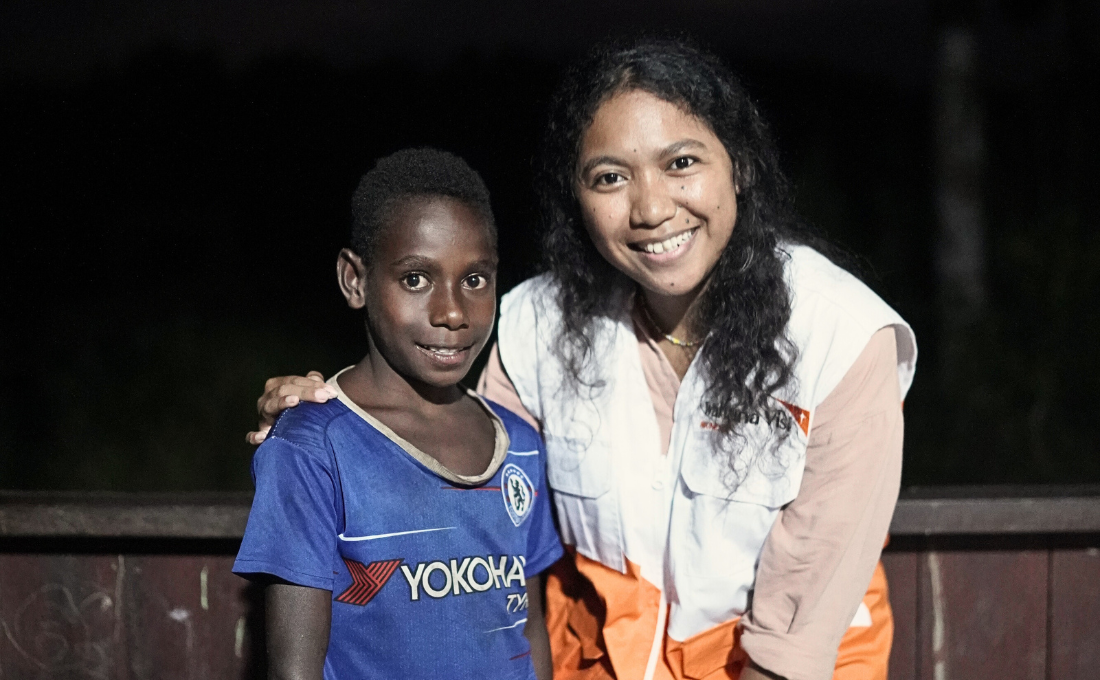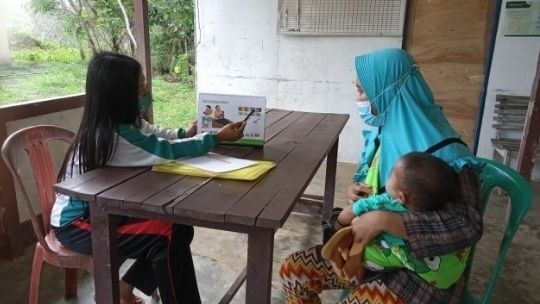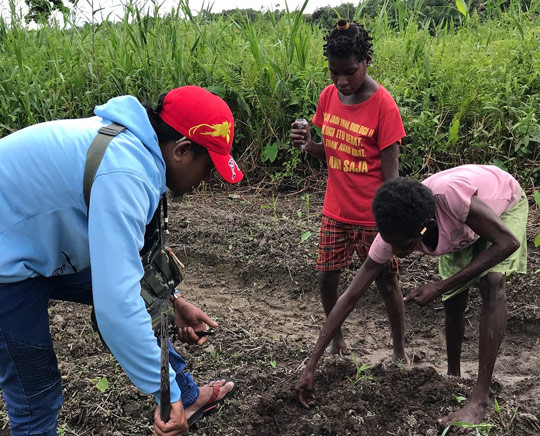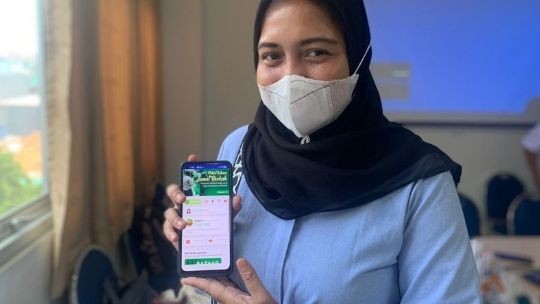The Humanitarian Who Refused to Become Numb: Isti's Secret to Lasting Impact

The constant sharpening of sensitivity is important for humanitarian workers. The array of responsibilities, piles of programme targets, and a string of administration often consume most of their attention. Meanwhile, the subject of humanitarian work itself—children and vulnerable communities—is relegated to second place. If this continues, humanitarian workers will become numb. The sensitivity to consistently accompany and strive for impact will be lost.
Isti (32), as the Head of Social Impact and Sustainability at Wahana Visi Indonesia, tries to maintain this sensitivity with one sentence: “If the why is clear, the how is easy.” In her tenth year with Wahana Visi Indonesia (WVI), Isti still constantly asks "why," "for what purpose," or "because of what." One answer that keeps emerging is "for children to live life to the fullest." This is where Isti sharpens her sensitivity. She constantly remembers that whatever programme is chosen must be able to help children and communities break free from the shackles of poverty.
From the many models of humanitarian programmes Isti has known over the years, she realises that none will lead to impact if accompaniment and prayer are ignored. When WVI truly is present and lives with the children and community, exchanging insights and praying together, then both WVI and the community will feel the impact.
"When we are in a particular community, it’s not always about what is ideal according to us. There needs to be dialogue, awareness-raising, and an exchange of vision to achieve a better potential state. So, we cannot just follow the framework of WVI as the companion. There needs to be a balancing context. Thus, this becomes a joint action that can prepare children and the community to fight against the barriers to their liberation. Liberation from stunting, illiteracy, dependency on aid, and others,” says this young woman.
Furthermore, because this accompaniment involves people over a long period, prayer becomes an important element. It's not just WVI praying, but also being prayed for. There is a reciprocal exchange of prayers between the community and the companions, staff and donors/sponsors, proposals and implementation, process and actors. "All these things should be in prayers," Isti states with conviction.
Isti also applies her sensitivity to humanitarian issues when conducting field visits. For Isti, a visit to one of WVI’s supported villages in Asmat Regency, South Papua, was the most memorable. There, she critically examined many things, including whether the education programme model WVI was implementing in Asmat was truly having an impact on the children.
"My purpose for coming to Asmat at that time was to have as much dialogue as possible with the community. While walking around the village, the pre-school and primary school children accompanied and showed me the way. They even protected me when I had to cross paths made of thin planks. They took the initiative to direct which planks I should cross. They also offered support when I lost my balance," she recounted.
The agility of these children was in stark contrast when they gathered at the Reading House. They struggled to recognise letters one by one, unlike how easily they could recognise planks one by one. Even children in the 5th or 6th grade of primary school still could not read or write. Yet, they should be preparing themselves to enter the next educational level.
"That night, I reflected. Comparing them to children their age living elsewhere, the journey of change is still long. The children in Asmat live and are experts in their context. They master their area, their playground. Actually, if they continue to live here as they are, it should be fine, right? But what if there is external intervention that wants to control their lives or livelihoods? Will the nature where they live always be able to provide? What if someone takes it away? What if they have to leave this area to study and then return? Is the equipment they possess sufficient to compete with other children who have access and technology?" explained Isti.
What she observed during her visit to Asmat became the spirit to strive for contextual yet competitive children's education. She quoted Paulo Freire from the book Pedagogy of the Oppressed, stating that it is vital to ensure children do not just receive 'banking' style education, but 'problem-posing education'. In other words, education that can answer the problems in their area and is not just a curriculum checklist.
"And that can only happen if the children, who are the future of that area, can read first. Only then can they have access to knowledge, the capacity to understand the reality that challenges them, the capacity for sustainable, solution-oriented thinking," summarised the graduate of Parahyangan Catholic University and the University of Indonesia. Therefore, for Isti, it is not wrong that WVI is currently striving to improve the literacy and numeracy of children in Papua.
What Isti experiences with WVI might seem impractical. However, it is precisely these fundamental aspects that serve as the main engine of her work as a humanitarian professional. Isti returns to the core of humanity consistent with WVI's vision: "Our vision for every child, life in all its fullness. Our prayer for every heart, the will to make it so."
For fellow humanitarian workers or those interested in the humanitarian field, Isti embodies the major concepts within the humanitarian movement. She proves that understanding these concepts is essential so that humanitarian work remains centred on the people. From Isti, we can also learn how important it is to maintain sensitivity for more meaningful impact.
Author: Mariana Kurniawati (Communication Executive)



